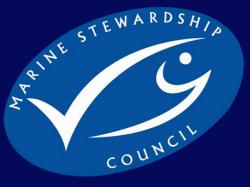MSC: New Research Reveals Levels Of Consumer Trust In Seafood Labeling
March 17, 2016 | 5 min to read

LONDON — Early results from the MSC’s latest survey of more than 16,000 seafood consumers show that more than half (55%) doubt that the seafood they consume is what it says on the packet. Across the 21 countries surveyed, 65% of those purchasing seafood say they want to know that their fish can be traced back to a known and trusted source, with six in ten (63%) saying they look to ecolabels as a trusted source of information.
The findings come as the organisation today released results from its DNA testing of MSC labelled seafood products. In 2015, the MSC commissioned the Wildlife DNA Forensics unit at Science and Advice for Scottish Agriculture (SASA) to conduct DNA tests on a random sample of 257 MSC labelled seafood products from 16 countries. The test verifies that the species described on the packaging is the same as that in the product. The DNA test results show that over 99%* of MSC labelled products are correctly labelled.
MSC CEO Rupert Howes said, “Given a recent academic study showing that globally around 30% of seafood is mislabelled**, the results of the MSC’s DNA testing program are very positive. Seafood sold with the blue MSC label can be traced back to a sustainable source, and our robust chain of custody requirements provide reassurance that it’s correctly labelled.”
The latest round of DNA testing is the fifth to be commissioned by the MSC. Previous results also showed very little mislabelling. The results are captured in a new report, Ocean to plate: how DNA testing helps to ensure traceable sustainable seafood.
Mr Howes adds: “High profile food scares such as the European horsemeat scandal have left many consumers wary of claims made on food packaging. Food fraud undermines the efforts of reputable fishers and traders and has led to wide recognition of the need for credible traceability in the supply chain. The MSC Chain of Custody program is one of the most recognised and widely used ways of providing this reassurance to seafood consumers and businesses.”
Fishers, processors, retailers and chefs handling MSC certified sustainable seafood must follow strict requirements to ensure that seafood is traceable and correctly labelled. The MSC Chain of Custody Standard is used by international seafood suppliers, brands and retailers such as IKEA, McDonalds, Iglo and Lidl to ensure the integrity of their products.
Alfredd Schumm, WWF’s Smart Fishing Initiative leader said: “By preferentially purchasing sustainable seafood, consumers are rewarding responsible fishers and their efforts to safeguard our marine resources. A traceable supply chain, from the consumer back to sustainable fisheries, is fundamental to consumers' trust and confidence in the seafood they’re buying. The MSC’s requirements for traceability are essential if we are to maintain healthy fish populations and ocean ecosystems."
There are more than 20,000 MSC labelled products available in around 100 countries.
The MSC has released a new animation showing the journey of MSC certified seafood from ocean to plate. Follow: #OceanToPlate.
*99.6% were correctly labelled. One sample, labelled as southern rock sole, was discovered to contain northern rock sole. Both species are MSC certified. Actions have been taken to ensure that this error does not reoccur.
**Pardo, Jimenez and Perez-Villarreal (2016) compared 51 papers on seafood labelling and found an average mislabelling rate of 30%.
Research figures were provided by independent research and evidence-led insights company, GlobeScan. The total sample size was 16,876 from 21 countries. The survey was carried out online between January and February 2016.
- Full details of the research methodology >
- Watch a short film about MSC’s DNA testing program >
- Find out more about the MSC’s requirements for seafood traceability >
About the Marine Stewardship Council (MSC)
The MSC is an international non-profit organization. Its vision is for the world’s oceans to be teeming with life, and seafood supplies safeguarded for this and future generations. www.msc.org
Source: Marine Stewardship Council (MSC)
